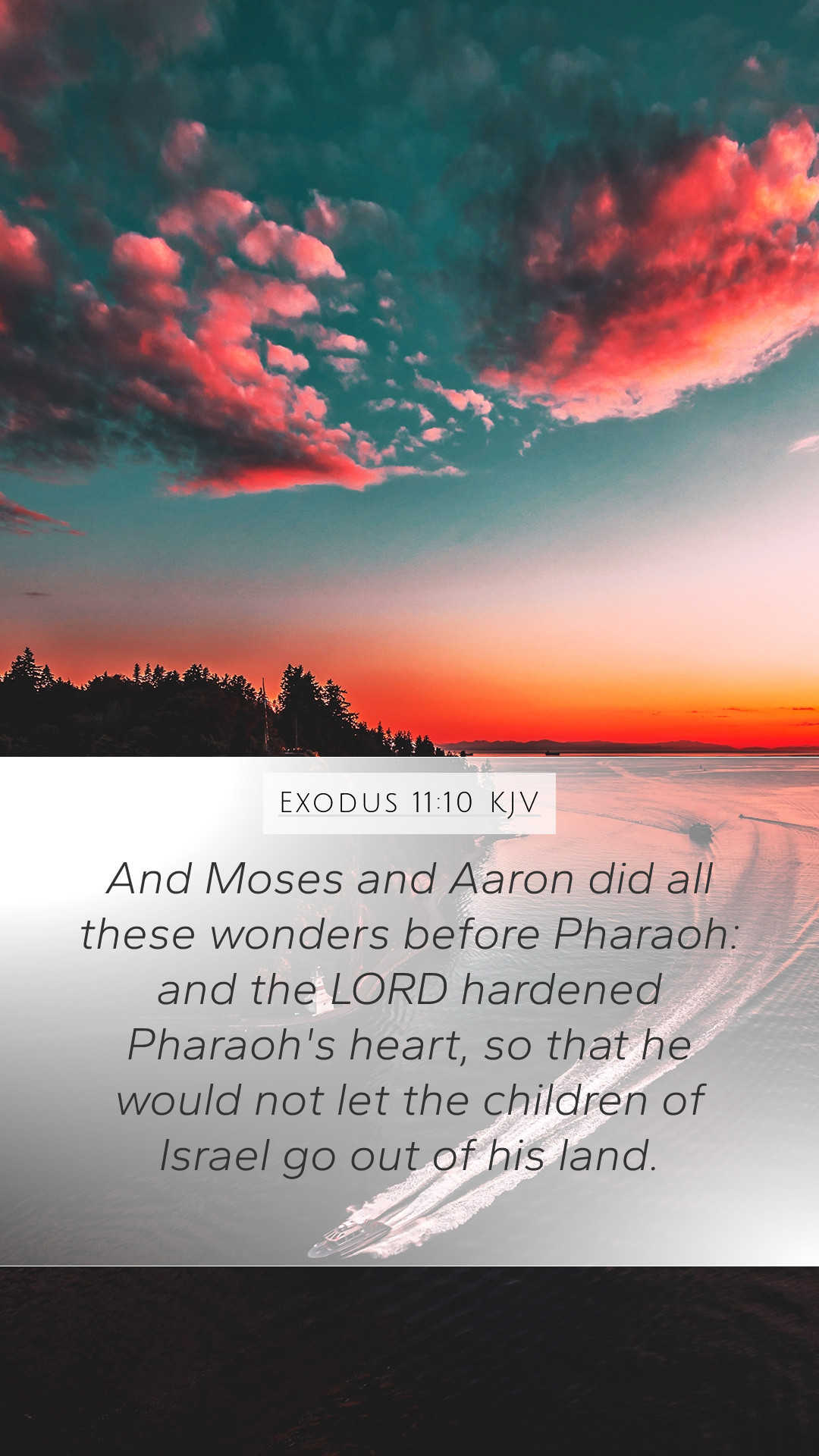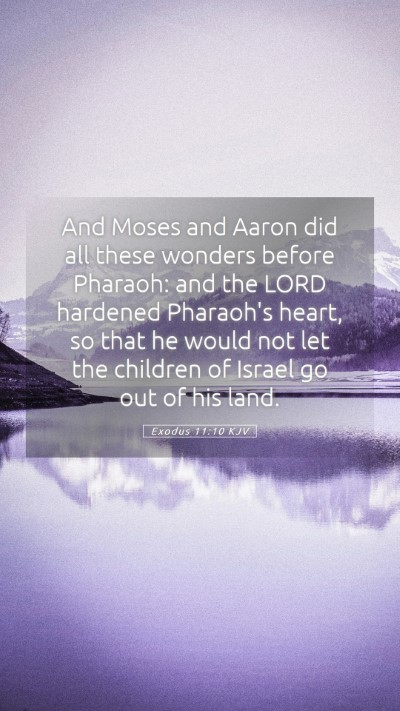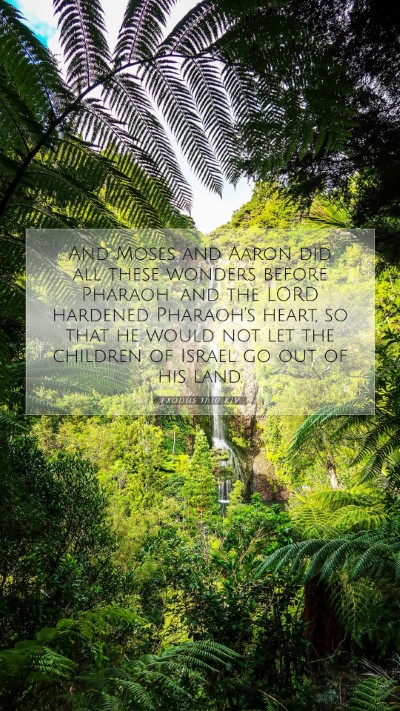Understanding Exodus 11:10 - A Comprehensive Commentary
Bible Verse: Exodus 11:10
"Moses and Aaron did all these wonders before Pharaoh: and the LORD hardened Pharaoh's heart, so that he would not let the children of Israel go out of his land."
Overview of the Verse
This verse occurs at a critical juncture in the Exodus narrative, underscoring God's sovereignty and the hardened heart of Pharaoh. It reflects on the culmination of the plagues that God sent upon Egypt, demonstrating both God's power and Pharaoh's stubbornness.
Insights from Commentaries
Matthew Henry’s Commentary
Henry explains that this passage illustrates the culmination of God's direct confrontation with Pharaoh. The miracles performed by Moses and Aaron served as both signs of God's power and a warning of impending judgment. The hardening of Pharaoh's heart, as described here, is significant as it implies that God, in His sovereignty, allowed Pharaoh's obstinance to manifest to fulfill His divine plan.
Albert Barnes' Commentary
Barnes emphasizes the phrase "hardened Pharaoh's heart," suggesting that while Pharaoh was initially resistant, God intensified his refusal to heed the warnings. This divine hardening wasn't merely punitive but part of a broader narrative that sets the stage for the eventual liberation of the Israelites. Barnes argues that God's purpose is accomplished through the display of signs and wonders, leading to a greater revelation of His authority.
Adam Clarke’s Commentary
Clarke presents a theological perspective on the hardening process, discussing the implications of free will. He notes that Pharaoh had already chosen to oppose God, and thus, the hardening was a judicial act whereby God confirmed Pharaoh in his own choice. Clarke highlights the necessity of understanding God's sovereignty and human responsibility, framing it within the broader theme of redemption and divine judgment.
Key Themes and Analysis
- Sovereignty of God: This verse emphasizes God's ultimate control over human affairs, particularly in His dealings with Pharaoh.
- Hardness of Heart: Pharaoh’s repeated refusal serves as a cautionary example of spiritual obstinacy.
- Signs and Wonders: The miracles performed highlight the divinity of God and the futility of human rebellion.
- Divine Judgement vs. Mercy: The contrast between God's judgment on Egypt and His mercy toward Israel is profound and striking.
Application and Reflection
For modern readers, Exodus 11:10 invites reflection on the nature of obedience and the importance of heeding divine warning. Understanding the dynamics of hardening a heart can also be applicable to contemporary spiritual life, urging individuals to remain open to God's guidance. Furthermore, it provokes thought on how we, too, may resist change and face consequences due to spiritual stubbornness.
Cross References
- Exodus 7:3 - God forewarns Moses of Pharaoh's resistance.
- Exodus 8:15 - Pharaoh's heart is hardened after relief from the plagues.
- Exodus 9:12 - God strengthens Pharaoh's heart to ensure His signs are multiplied.
Conclusion
Exodus 11:10 serves as a powerful reminder of the intersection between divine sovereignty and human choice. It calls for an understanding of biblical exegesis that recognizes God's purposes in history. By engaging with this verse, readers can gain deeper insights into the significance of biblical narratives and the moral lessons that can be gleaned from them.
Further Study Suggestions
To deepen your understanding of this scripture, consider the following study approaches:
- Participate in Bible study groups focusing on the book of Exodus.
- Utilize online Bible study tools for additional context and background studies.
- Explore Bible study resources that outline historical contexts surrounding the Exodus narrative.


